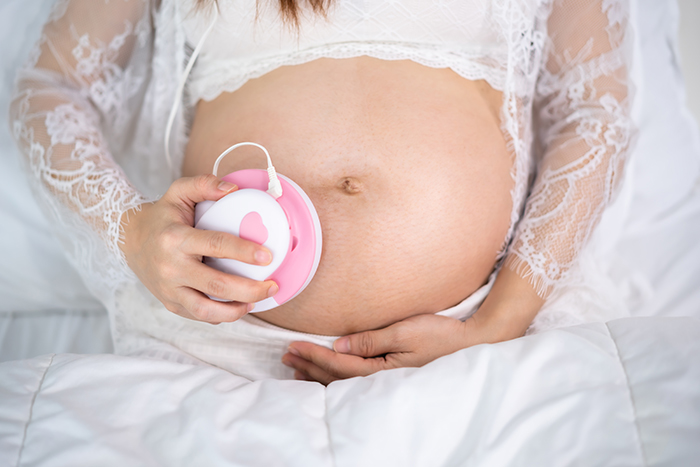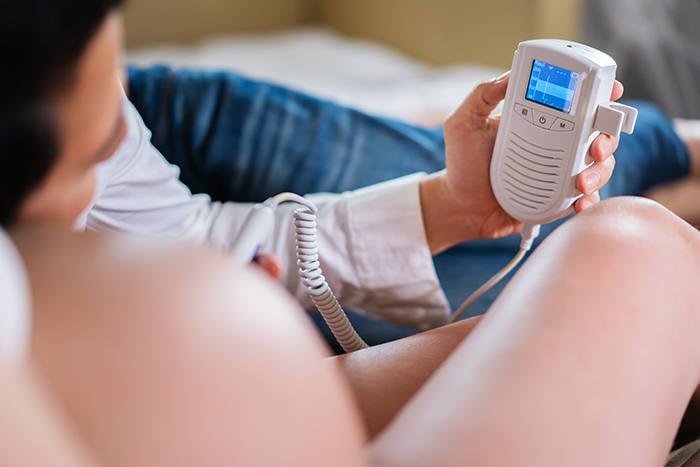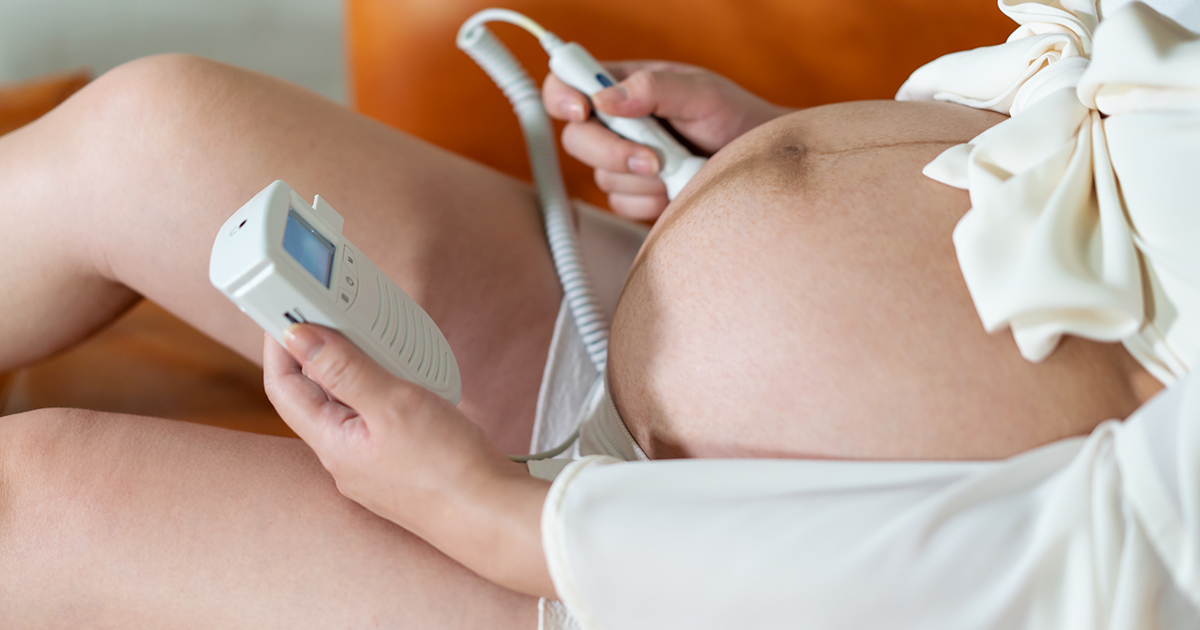Human beings are straight-up slaves to curiosity, and we can never get enough! The same goes for a pregnant woman. At this very moment, you have the urge to know what’s going on inside your growing tummy.
Thanks to the advanced pregnancy monitoring devices of today’s world, it’s more convenient than ever to check on a baby’s health at the comfort of your home. However, you must be wondering whether these devices are safe to use? Does it have any adverse effect on your baby’s health?
If so, you’re in luck! We’re here to dissect the fact “is it safe to use an at-home fetal Doppler during pregnancy?” Stick till the end to find out- But first,
What exactly is an at-home fetal Doppler?
Fetal Doppler monitors work and function just like any other ultrasound technology-based device. An at-home fetal Doppler—also known as pocket fetal Doppler—is a handheld device capable of recording a baby’s heartbeat.

Fetal Doppler transmits sound waves through the mother’s skin and tissue to track any movement. When detected, the waves bounce back, which the device records an auditory signal and plays it back for you.
What are the potential risks of using an at-home Fetal Dopler?
Ultrasounds heat the fetal tissues slightly. If you hold the doppler on one spot for a long time, there’s an inevitable risk of bubble formation inside the tissues, which is not good for the baby.
Though there is no solid evidence of ultrasound causing trouble, longer exposure to it may negatively affect your baby’s brain development. So, it’s not worth the risk.
Another reason is at-home fetal Dopplers might not always be reliable. At times, you may not be able to align the beam to your baby’s heart in a proper way. It will result in no heartbeat and can also cause a sense of panic among the parents-to-be.
Are there any benefits to using an at-home Fetal Doppler?
Sadly, No! There are no proven medical benefits of using an at-home Fetal Doppler. Most fetal dopplers available in the market (or online) only work post third trimester. For the record, when your baby is 28weeks old, you can start sensing kicks. If you are a little patient, you can pick up faint heartbeats without any ultrasound-based device needed.

In our opinion, we would advise refraining from using any at-home ultrasound devices to listen to your baby’s heartbeat.
Do doctors recommend using at-home fetal Doppler?
A joint statement released by the American Association of Radiologists and the Society of Obstetricians in Canada in the mid of February 2014 reads: “no fetus must be exposed to an ultrasound for entertainment purposes.”
That pretty much sums up how doctors feel about the at-home ultrasound shooting devices.
What are the safer ways of monitoring your baby at home?
Monitoring baby movements is, by far, the safest way to keep a check on your baby at home since sliced bread! From Week-17 to Week-18 onwards, almost all pregnant mothers start experiencing slight movements and fetal kicks. Generally speaking, you would be able to count about six kicks or subtle movements per two to three-hour window.
If you fail to record any movement or experience kicks during this period, or you think that something’s off, we advise you to check with your doctor without any further delay!
Wrap up
As you already know by now, there are no proven advantages of listening to your child’s heartbeat using an at-home fetal Doppler. But, there are a plethora of adverse effects (as we’ve discussed earlier) if you use one!
The wise thing would be not to consider any at-home ultrasonic devices and leave them to the experts!

